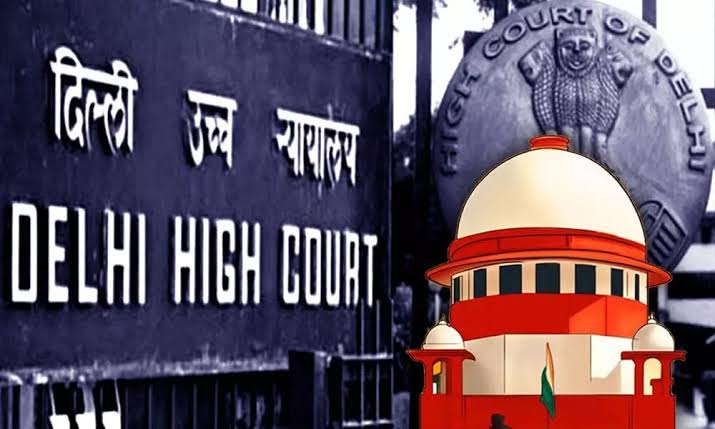


The Delhi High Court on Thursday passed a detailed judgement fixing timelines for processing of applications, verification/completion of documents and scheduling of interviews for organ and tissue transplantations [Amar Singh Bhatia & Anr v Sir Ganga Ram Hospital & Ors].Justice Prathiba M Singh said that processing of application under Rule 10 of Transplantation of Human Organs and Tissues Rules, 2014 should be completed within 10 days and the verification of documents as per Form 20 of these rules should be considered within a maximum of 14 days.
“Within the prescribed timeline under the 2014 Rules, any opportunity given to the donor or recipient to complete the required documentation must be communicated. The donor or recipient should be given a maximum of one week to respond. If further opportunities need to be given, the same ought to be given after due consideration, with a strict deadline. Upon expiry of this timeline, the case should be presented to the Authorisation Committee,” the Court ordered.It further said that after four to six weeks from receiving the application, the Authorisation Committee should schedule an interview within two weeks and during this two-week period, the committee ought to conduct an interview of donor/recipient on one or two occasions and facilitate meeting of family members of both the donor and recipient.The Committee should convey its decision as per Rule 23 of the 2014 Rules in this two-week period, the Court ordered.“The entire process, from submission to decision, ought not to ideally exceed 6 to 8 weeks,” the single-judge stressed.The appeal under Rule 33 against the Authorisation Committee’s order should be decided within a maximum period of 30 days, the Court added.The Court passed the judgment while dealing with a plea filed by a retired officer of the Indian Air Force who was diagnosed with kidney failure in March 2017.In December 2018, a Gurgaon Hospital recommended preemptive renal transplant. While the petitioners collected several documents and kept supplying them to the hospitals, no decision was taken on their plea.Finally, they moved the High Court.On February 24, 2021, the High Court ordered the Authorisation Committee to take a decision within two weeks. When the matter was taken up again in October 2021, the Court was told that the petitioner had passed away.The Court decided to continue with the case and heard the arguments on prescribing timelines for various stages of the organ/tissue transplantation.The Central government told the Court that as per the rules, the Authorisation Committee has to take a decision within seven working days after the receipt of all the required documents.Advocate Charu Aneja appeared for the petitioner and submitted that no timelines exist for the Authorisation Committee to hold the interview which leads to delays in deciding cases.She highlighted Rule 7 of the 2014 Rules which outlines the procedure to be followed by the Authorisation Committee.
Aneja contended that if timelines are not prescribed and the Authorisation Committee indefinitely adjourns hearings without meeting with the donor and their family as well as the recipient and their family, the applications remain in suspended animation causing prolonged suffering for the patient.The Court considered the case and concluded that the scheme of the Transplantation of Human Organs and Tissues Act, 1994 and the Transplantation of Human Organs and Tissues Rules, 2014 show that there is a sense of urgency underlying the process of granting approvals for organ donation.The Court observed that non-adherence to timelines has resulted in extended waiting periods of two to three years in some cases which contradicts the intent as also the letter and spirit of the 1994 Act and the 2014 Rules.Justice Singh said that the timelines suggested by the Court are provided as a reference for the competent authority, “enabling them to take an informed decision in this matter and the competent authority is expected to issue a proper communication to all stakeholders, prescribing timelines and ensuring their adherence”.“Let the present judgment be placed before the Secretary, Ministry of Health and Family Welfare so as to ensure that timelines under the 1994 Act and 2014 Rules are prescribed for all the steps in the process of consideration of applications for organ donation, after consultation with the relevant stakeholders,” the Court ordered.Advocate Charu Aneja appeared for petitioner Amar Singh Bhatia and Mukesh Kumar.Advocate Saroj Bidawat represented the Union of India.Delhi government was represented by Additional Standing Counsel Rishikesh Kumar and advocates Sheenu Priya, Sudhir Kumar Shukla and Sudhir Sumit Choudhary.Advocate Subhash Kumar appeared for Sir Ganga Ram Hospital.
TAGS: Delhi High Court Organ Transplantation Timelines Processing Applications